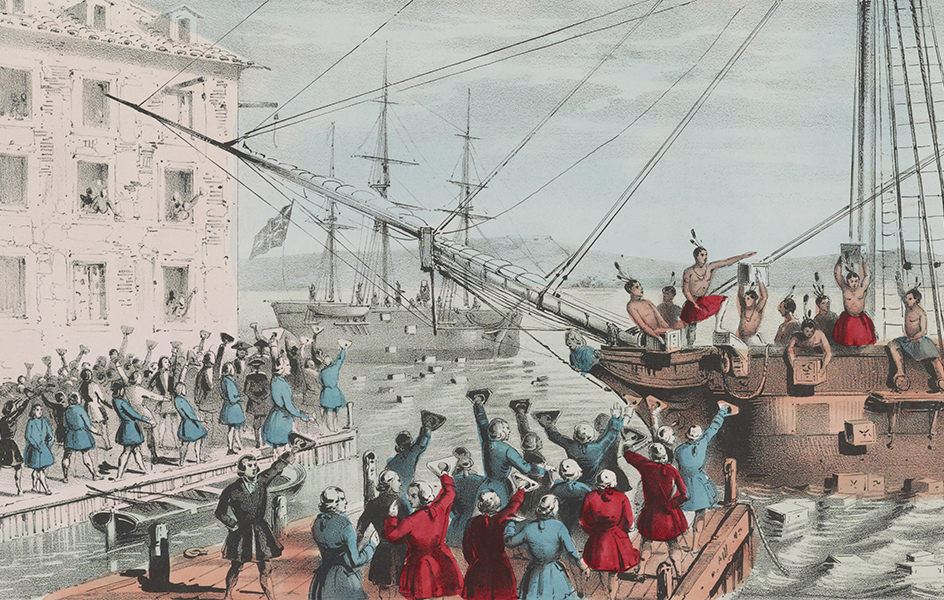Tea Act was a 1773 law passed by the British Parliament to help the East India Company , a British trading company, out of financial trouble. This act enabled the company to sell tea in Britain’s American Colonies at a low price. Many colonists objected to this arrangement, which they feared could put American merchants out of business. The tea was also subject to a duty (import tax) passed some years earlier. Colonists also objected to paying such taxes because they had no political representation in Parliament. Discontent over the Tea Act and other British policies led angry Bostonians to dump tea cargoes into Boston Harbor—an event that came to be known as the Boston Tea Party .

Background.
In 1767, the British Parliament passed the Townshend Acts , placing duties on several items imported into America. Many colonists considered such taxes illegal, and they were determined not to pay them. In 1770, the British government repealed all the duties except for one on imported tea. To avoid paying the Townshend duty on tea, colonial merchants smuggled in tea from the Netherlands. Britain’s East India Company had been the chief source of tea for the colonies. The smuggling hurt the company financially, and it asked Parliament for help.
The Tea Act.
In 1773, Parliament passed the Tea Act, which enabled the East India Company to sell its tea below the price of smuggled tea. Parliament hoped the law would help the company pay off its considerable debts. This act enabled the company to sell tea in America at lower prices than colonial merchants could charge. Agents of the East India Company received a monopoly on its sale. Colonists feared the tea monopoly would put some of their local merchants out of business. Furthermore, despite its low price, the company’s tea was still subject to the duty established in 1767. Colonists thought that if they paid the duty on tea, the British would impose other taxes.
A tea party.
News of the Tea Act led to protests in America. The colonial agents appointed by the East India Company to receive and sell the tea shipments resigned due to local pressure in Charleston, New York, and Philadelphia, but not in Boston. Three of the company’s tea ships arrived in Boston Harbor in late November and early December of 1773. The Bostonians tried to get them sent back to England, but Massachusetts Governor Thomas Hutchinson rejected those efforts. On December 16, a number of colonists, disguised as Native Americans, boarded the ships and dumped more than 300 chests of tea overboard. The “tea party” enraged Britain’s King George III and many members of Parliament.
The ships that reached Philadelphia and New York quickly left without unloading any tea. In Charleston, the governor had the tea unloaded and stored, but no tax was collected. The stored tea eventually was sold after the American Revolution began, and the money was used to support the patriot cause.
British reaction and later developments.
The British government reacted in 1774 by passing several harsh measures that they called the Coercive Acts. The laws became known in America as the Intolerable Acts . These laws, which included provisions to close the port of Boston until the tea was paid for, united colonial opposition to British rule. The opposition led to the First Continental Congress—a gathering of representatives from 12 of the American Colonies—and ultimately to the American Revolution (1775-1783).
